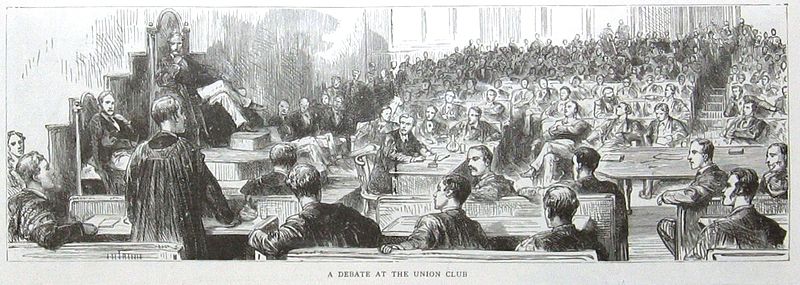|
LEOPOLD BAILEY Volume 8, Issue 9 Dear MULSS, I read the recently promulgated Social Media Policy with some concern and am writing to voice my views on what I perceive to be the impermissible overreach of the policy. At the outset, I acknowledge the LSS’s request that feedback be sent privately to the Communications Director. However, it did not seem appropriate to adhere to this request in light of the thrust of my concerns voiced below. For context, I have previously been frustrated at LSS engagement with social media. I appreciate that decisions about how to use social media will always be complex and that it is impossible to please everyone. However, I found prior LSS requests to submit silent feedback on policy questions to be concerning. Silent feedback mechanisms are counter-productive to the perception of transparency and confidence in the LSS decision making process. This is an obvious point (particularly to prospective lawyers) when one considers the fundamental logic of accountability and the giving of reasons that underpins our legal and political system. In saying this, I appreciate the distinction between requests for and the giving of submissions on a policy question on the one hand, and the making of a decision and the accompanying reasons on the other. I am sharing my views because I know many other LSS students felt similarly, and I have the interests of the LSS and JD student body at heart in achieving best practice administration. 'User' Includes Hapless Parent One concern with the current policy is that 'User' is too broadly defined. The scope of the current definition could include friends or family members of LSS members, or other unrelated third parties, who happen to view or engage with MULSS social media. The basis on which the LSS can impose obligations on such persons affecting their use of social media seems doubtful on the face of it. Secret MULSS Deal With Zuckerberg? - 'MULSS Social Media' Includes Facebook Because the LSS definition of 'MULSS Social Media' is not exhaustive, the phrase 'any other platform of communication facilitated by the LSS' is another instance of potential over-inclusion. The problem arises from the use of the word 'facilitate'. The Macquarie Dictionary defines 'facilitate' as 'to make easier or less difficult; help forward'. On this definition, public LSS posts would facilitate communication about the topic therein. The issue of whether posts are made by LSS members in their capacity as LSS members or private individuals might also arise. The input of LSS members to discussion threads, insofar as it was useful or otherwise clarified the discussion, could also be construed as facilitation. Thus the potential scope of MULSS Social Media proliferates to catch a larger and larger amount of online conduct. This is problematic for a number of reasons. First, insofar as the scope of MULSS Social Media extends beyond MULSS hosted private groups, the policy appears to attempt to regulate JD students use of social media, a formerly unrestricted domain bounded only by the civil and criminal law and Facebook user agreement. Second, non-LSS members may become involved as Users by contributing to public MULSS Social Media content (which is explicitly contemplated by the definition of 'user' as highlighted above). In both instances, in furtherance of the policy under the 'Breach' section, how does MULSS propose to carry out the enforcement mechanism of account suspension? How are members of the public and students to distinguish between MULSS Social Media and other social media content? Will the MULSS bind its members by a counterpart code of conduct prohibiting public posts during the term of their appointment? Or perhaps require they insert of a disclaimer identifying whether the post is made in their capacity as an LSS member or a private individual? At best, the ambiguous definition of 'MULSS Social Media' and 'Users' is sloppy drafting. At worst, it betrays a perceived (but not actual) intention by the LSS to impose obligations attendant on social media use on individuals including members of the public with no connection to the law school other than chance contact with 'MULSS Social Media'. In the middle ground of consequences, the policy introduces an element of uncertainty into MULSS members interactions with social media and a potential chilling effect on those interactions. The New Standard: Law Students 'Polite and Courteous' - All of the Time
These criticisms may seem an overblown when it is remembered that the express purpose of the policy is merely to promote productive, courteous and respectful discourse. We can all agree that discrimination and harassment is bad and there is no place for it in this law school. Thus provided users abide by conventional standards of acceptable communication no issue arises, and for any transgressor, we may well be unconcerned by the minimal proposed repercussions to their undesirable behaviour. However, the problem is the policy goes beyond prohibiting obviously unacceptable forms of communication such as discrimination and harassment. It proscribes a positive standard of 'productive and courteous communication'. This is a high threshold for acceptable communication, which I for one would be loath to accept in any other (non-professional) context. The standard is elaborated further in the policy by defining the forms of communication that fall beneath the threshold. One provision in particular that stands out from the rest is the 'anti-trolling' clause. In attempting to excise trolling from MULSS social media, the LSS appears to attempt to define and limit acceptable forms of communication into a bland replication of academic discourse. Imposing that standard on the heretofore acknowledged - and celebrated as such - anarchic domain of online social media goes too far. Gagging The Discourse - In Defence of Trolling The provision prohibiting trolling is actually ironic because it seems to at once define a purpose or objective, namely meaningful discussion and the free exchange of ideas, and then defeat it by its terms. Trolling is defined by the Macquarie Dictionary as someone who 'posts messages ... [online] designed to disrupt the normal flow of communication by being inflammatory or puzzling.' Urban Dictionary captures another important aspect of the meaning of trolling by defining it as making 'cynical or sarcastic remarks'. The element of sarcasm and cynicism highlights the valuable role trolling can play in facilitating meaningful discussion. Sarcasm has long been a valuable rhetorical tool to point out absurdity in the target's position or argument. In modern online discourse it has evolved into an original communicative device known colloquially as trolling. A good troll can be intelligent, insightful, humorous and devastating. It is not necessarily disrespectful, discourteous or insulting, or threatening to discourse in any way, but can actually enrich it. Thus a prohibition on trolling could act to prohibit the free exchange of ideas. As for 'disrupting the normal flow of communication'. In the case of trolling, such disruption could mean contributing a barbed but witty counterpoint to a prevailing consensus. Again, here trolling can play a valuable part in contributing to meaningful discussion by facilitating the robust exchange of ideas that is essential to productive discourse. Such discourse is one of the inherent and traditional values of university education. It exposes young minds to a stimulating environment in which arguments can be made and critiqued, and ideas explored and questioned, in an environment which is not overly sanitised or politically correct. It is an opportunity to engage with radical ideas before students graduate and enter the workforce where by and large they will be bound by more restrictive codes of professional conduct. Furthermore, the choice of language makes the policy read as paternalistic. It is more or less explicit that behind the words 'appropriate' and 'tolerated' stand members of the LSS making a judgement call on the permissibility of LSS members online communications. I am speculating but I imagine that most JD students would find the suggestion that, with the advent of this policy, a group of their peers may conduct an 'investigation' on the permissibility of their speech, to be obnoxious. Trolling is a cultural and linguistic innovation unique to our generation, which can be viewed as an inherently valuable and enriching artefact of modern communication. An attempt by the LSS via the Social Media Policy to sanitise online discourse comes across as authoritarian, and raises the suggestion of a conformist project. In this regard the policy is more reminiscent of a relationship of employment than that between a student body and representative student council. Final Thoughts The efforts of the LSS in addressing the issue of student conduct on social media are laudable and the MULSS is to be commended for the leadership and initiative they have demonstrated in taking action thus far. Most of us are familiar with events leading to the promulgation of the Social Media Policy and would agree that those events engendered a need to take action. I am certain that I would not be alone in expressing the sentiment that I am thankful to be represented by such bright, conscientious and committed individuals. However, the precise form in which the LSS has responded raises issues which ought to be debated. Much of what the policy seeks to achieve is already captured by existing law and university policy – most importantly, discriminatory and harassing behaviour. What’s left over appears to reach into student’s freedom of expression. We may well question the impetus for this policy, look closely at the defined objectives, and in light of such examination consider whether there might be alternative methods to achieve the desired outcomes. Leopold Bailey is a second year JD student
Mr Troll
15/10/2015 08:57:31 am
This article sucks. Comments are closed.
|
Archives
October 2022
|




